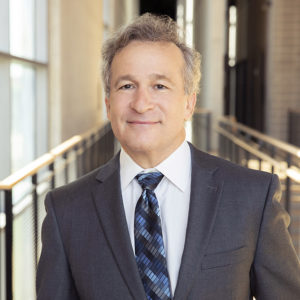The regulatory status of CBD seems to change yearly, if not monthly. It’s enough to give the public whiplash. CBD, the non-psychoactive ingredient of marijuana or industrial hemp, supposedly treats everything under the sun now. Putting aside any claims of efficacy, what is its regulatory status?
The 2018 Farm Bill removed cannabis with extremely low concentrations of THC from the definition of marijuana in the Controlled Substances Act. Marijuana and industrial hemp are cultivated from the same species. Hemp and recreational cannabis are essentially the same plant. Industrial hemp has low concentrations of the psychoactive component, THC (less than 0.3%). The Farm Bill expanded the definition of hemp from stalky cannabis plants with small leaves to any cannabis plant with less than 0.3% THC. Sale of CBD from cannabis that has less than 0.3% THC no longer violates the Controlled Substances Act.
So far, so good. Removing CBD from the Controlled Substances Act explains why we see shops selling CBD in every state on many street corners.
While the Department of Justice (and the DEA) now take the position CBD is a non-issue, not every government agency agrees.
Amy Abernethy, MD, PhD, Principal Deputy FDA Commissioner said:
“At present, any CBD food or purported dietary supplement products in interstate commerce is in violation of the FD&C Act.”
The reason: Epidiolex.
You would correct in retorting, “Huh?”
Epidiolex is a CBD product manufactured by GW Pharmaceuticals. It is FDA approved to treat specific types of medication-resistant seizures. Under the FD&C Act, it is illegal to sell across state lines a product that contains an active ingredient in an approved drug. The FDA considers products that contain CBD to be unapproved new drugs that violate the FD&C Act, even if such products claim to be dietary supplements. To the FDA, the same compound cannot be both a drug and dietary supplement.
In other words, once CBD was approved by the FDA to treat seizures, entities other than GW Pharmaceuticals had no permission to do likewise. The FDA treats it as a “counterfeit product,” even if street CBD is indistinguishable chemically from that distributed by GW Pharmaceuticals.
On one level, it makes sense. If Pfizer spent a decade and $1B doing clinical trials on a compound prior to approval, and a mom and pop store decided to sell knock-offs that were indistinguishable chemically, the FDA would take action.
Oddly enough, once Epidiolex was approved by the FDA as a CBD compound to treat seizures, over the counter CBD became illegal as a supplement.
This seems confusing. In other words, the compound went from okay to illegal.
There is an FDA approved fish oil, Vascepa. Yet, I can still walk down the aisle in Costco and see plenty of over the counter fish oil.
Plus, there are pharmaceutical grade vitamins and dietary supplements, such as Carnitine and Niacin. Likewise, walk into GNC and you’ll see scores of such supplements.
Trying to think this through from a regulatory standpoint is enough to make your head explode.
Will the FDA take action against stores selling CBD? Doubtful, unless individuals are harmed by the product or wild and outrageous claims are made by the seller. On radio and magazine ads, the fine print for supplements generally states that such compounds are not intended to diagnose or treat any condition. That would seem to be the bare minimum needed to sell CBD without triggering the FDA’s wrath.
The FDA does not have unlimited resources to make good on its assertion that distributing CBD across state lines (as anything other than Epidiolex) is illegal. Time will tell.
